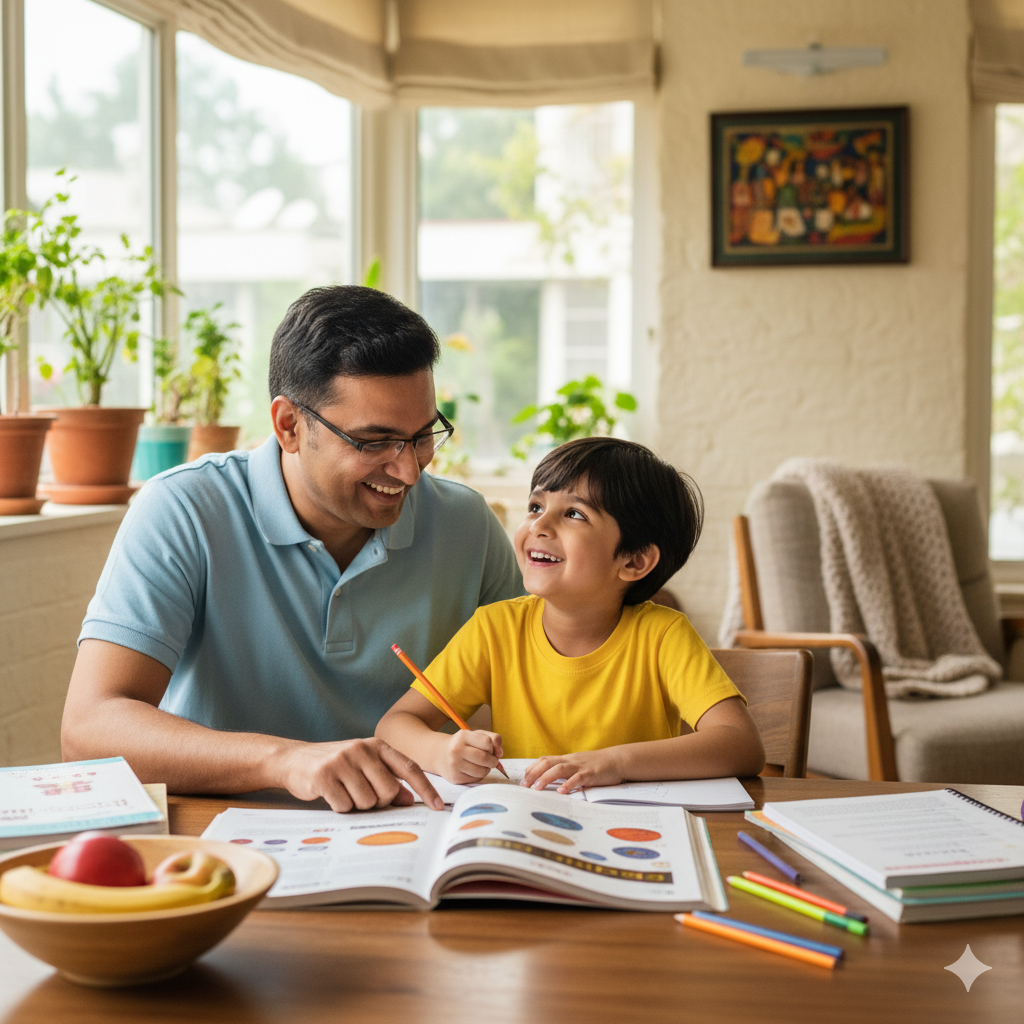How to Get Kids Interested in Things in Just 10 Minutes a Day

Why curiosity is more important than ever
Answers are only a click away in today’s fast-paced world. But the most important thing is to be able to ask questions, think critically, and explore ideas. These skills help kids in school and in life as adults, where being able to adapt and solve problems is very important.
You can learn to ask questions at a young age. A mind that is curious is the only one that dares to wonder. That’s why parents should encourage their kids to be curious.
The good news is that you don’t need a lot of free time or complicated projects. Busy parents can still encourage curiosity by making small, planned sparks that lead to long-term growth of curiosity. Ten minutes a day is all it takes to start a chain reaction.
What are some good questions to get kids interested?
Kids are naturally full of “why” questions, but we often hurry to give them answers. What if we stopped and threw the question back instead?
- “Why do you think the moon sometimes shows up during the day?”
- “What do you think ants are saying when they touch antennas?”
These simple questions to get kids thinking not only make conversations more fun, but they also help kids come up with their own ideas and improve their critical thinking. A busy night? While you’re driving, setting the table for dinner, or getting ready for bed, ask yourself, “I wonder…” It only takes a few seconds, but it keeps their minds open and busy.
How can I get kids interested in their daily routines?
- You don’t need a classroom to learn the most. It happens in the middle of life. Kids love to do things that are part of their daily lives:
- “Why does pasta get soft in hot water?” while making dinner
- Walking to school: “Why do our shadows get longer at night?”
- Folding laundry: “Why do some clothes dry faster than others?”
You don’t have to know the answers ahead of time. In fact, saying “I’m not sure, let’s find out together” is a great way to get kids interested in learning because it shows them that learning is about exploring, not being perfect.
These short conversations turn everyday tasks into mini-labs of discovery without adding anything to your to-do list.
How do I get my child to be curious and pay attention?
Encouraging your child to observe before explaining is one of the easiest ways to make them curious. If we give them the chance, kids often notice more than we think they do.
“Close your eyes for 30 seconds” is a quick game you can play. Can you count how many different sounds there are?
This short exercise takes less time than reading a text message, but it teaches kids to pay attention, look deeper, and notice things that other people might miss. These little things lay the groundwork for developing curiosity.
How can parents show their kids how to be curious?
People who are curious are contagious. When parents show their own sense of wonder, kids learn that questions don’t stop when you get older.
For instance, you could say, “I’ve always been curious about how bees find flowers so quickly.”
By letting kids see that adults are still learning, you show them how to raise curious kids. It’s not always important to have the answers; what’s important is being brave enough to ask the question.
Curiosity is a family value, not just something kids do.
How can I get my kids interested in things in just 10 minutes a day?
Parents don’t often have a lot of free time because they have to pick up and drop off their kids at school, meet work deadlines, and do a lot of chores. That’s why keeping a “curiosity window” open for just 10 minutes a day can make a big difference.
It might be:
A question to ask before bed,
A short game of observation on the way home, or
A fun surprise while we cook together.
Length doesn’t matter as much as consistency. These rituals tell your child, “This is our time to explore together,” over time. Those ten minutes make you feel connected, calm, and curious, even if the rest of the day is crazy.
How can you make kids curious every day?
To get kids interested, you don’t need to spend a lot of money, plan out lessons, or spend a lot of time. You need to be there, pay attention, and be willing to wonder with your child.
Ten minutes today may not seem like much, but those sparks add up. They teach kids to see the world as a place full of possibilities, not just as it is. That way of thinking is priceless in a future where being able to change and come up with new ideas is more important than remembering facts.
Final Thoughts
A lot of the time, parents don’t realize how important small moments are. But studies and experience show that kids remember the little questions, observations, and shared wonders the longest.
So, the next time you’re cooking, walking, or getting ready for bed, remember this: you can make kids curious with just a few minutes of your time.
That’s how you teach a child not only how to get answers, but also how to ask the right questions. And that’s what lifelong learning is all about.
